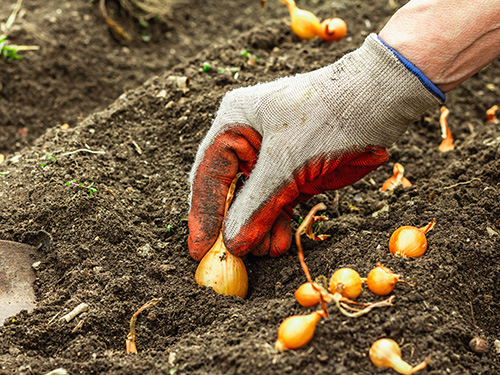Spring Planting Guide: What to Plant and When in Tennessee
Mar 03, 2025

As winter fades and the days grow longer, it's time to start planting your spring garden! Cool-season crops thrive in the early months of the year, making spring the perfect time to get your hands in the soil. If you're eager to grow your own fresh vegetables, here’s a basic planting schedule to guide you through the season.
Late February – March:
Once the soil is workable and temperatures are consistently above freezing, it’s time to plant hardy, cool-season crops that can withstand light frosts. Start with these garden favorites:
April:
As soil temperatures warm up and the risk of frost diminishes, it’s a great time to succession plant some of your earlier crops for a continuous harvest.
May:
As temperatures rise and the danger of frost is gone, it’s time to introduce warm-season vegetables into your garden.
By following this planting schedule, you’ll set yourself up for a successful and productive spring garden. Whether you’re growing onions, leafy greens, root vegetables, or warm-season crops, planting at the right time ensures a fresh and flavorful harvest throughout the season.
Your local Co-op carries a wide selection of garden seeds and all the tools you need to get started. Plus, our experts can offer advice to help you grow a thriving garden. Stop by today and let them help you make this planting season a success!
Find the nearest Co-op location here. For more seasonal farm tips, check out the latest issue of The Cooperator.
Late February – March:
Once the soil is workable and temperatures are consistently above freezing, it’s time to plant hardy, cool-season crops that can withstand light frosts. Start with these garden favorites:
- Onions – Plant sets, transplants, or seeds in late February for a strong start.
- Potatoes – Seed potatoes should be planted from mid-February to March.
- Peas – English peas, sugar snap peas, and snow peas do best when planted in late February to early March.
- Carrots, Radishes, Beets, Turnips, and Parsnips – These root vegetables thrive in the cool soil of early spring.
- Leafy Greens – Lettuce, spinach, kale, collard greens, mustard greens, and Swiss chard can be directly seeded or transplanted from mid-February to March.
- Cole Crops (Brassicas) – Cabbage, broccoli, cauliflower, and Brussels sprouts should be transplanted in early March for a productive growing season.
- Asparagus – If you’re starting an asparagus patch, plant crowns in mid to late March for a long-term harvest.
April:
As soil temperatures warm up and the risk of frost diminishes, it’s a great time to succession plant some of your earlier crops for a continuous harvest.
- Lettuce, Spinach, Radishes, and Carrots – Second plantings of these vegetables keep the harvest going longer.
- Green onions – Direct seed for a steady supply of fresh scallions.
- Swiss chard – A second planting ensures tender greens into early summer.
May:
As temperatures rise and the danger of frost is gone, it’s time to introduce warm-season vegetables into your garden.
- Tomatoes – Transplant young plants after the last frost date.
- Peppers – Bell peppers, hot peppers, and sweet peppers thrive in the warm May soil.
- Cucumbers – Direct seed or transplant seedlings for a steady summer harvest.
- Squash and Zucchini – These fast-growing crops can be direct-seeded in early May.
- Beans – Green beans, bush beans, and pole beans can all be planted in mid-May.
- Corn – Plant in blocks for better pollination and a strong summer harvest.
- Melons – Cantaloupe and watermelon love the warm May temperatures.
- Okra – A heat-loving vegetable that thrives when planted in mid to late May.
By following this planting schedule, you’ll set yourself up for a successful and productive spring garden. Whether you’re growing onions, leafy greens, root vegetables, or warm-season crops, planting at the right time ensures a fresh and flavorful harvest throughout the season.
Your local Co-op carries a wide selection of garden seeds and all the tools you need to get started. Plus, our experts can offer advice to help you grow a thriving garden. Stop by today and let them help you make this planting season a success!
Find the nearest Co-op location here. For more seasonal farm tips, check out the latest issue of The Cooperator.